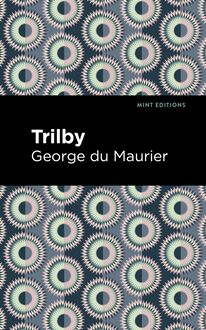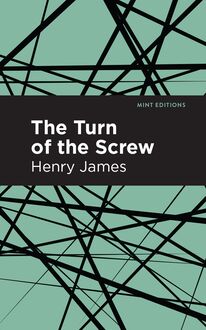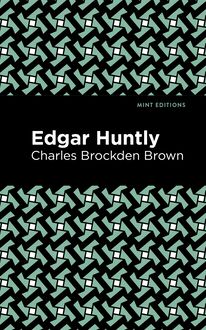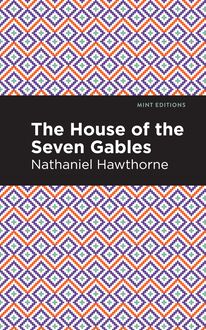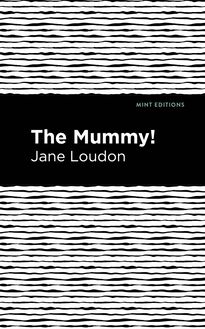-
 Univers
Univers
-
 Ebooks
Ebooks
-
 Livres audio
Livres audio
-
 Presse
Presse
-
 Podcasts
Podcasts
-
 BD
BD
-
 Documents
Documents
-
- Cours
- Révisions
- Ressources pédagogiques
- Sciences de l’éducation
- Manuels scolaires
- Langues
- Travaux de classe
- Annales de BEP
- Etudes supérieures
- Maternelle et primaire
- Fiches de lecture
- Orientation scolaire
- Méthodologie
- Corrigés de devoir
- Annales d’examens et concours
- Annales du bac
- Annales du brevet
- Rapports de stage
La lecture à portée de main
Vous pourrez modifier la taille du texte de cet ouvrage
Découvre YouScribe en t'inscrivant gratuitement
Je m'inscrisDécouvre YouScribe en t'inscrivant gratuitement
Je m'inscrisEn savoir plus
Vous pourrez modifier la taille du texte de cet ouvrage
En savoir plus

Description
The Three Impostors (1895) is a novel by Arthur Machen. Consisting of interwoven stories involving the title characters, The Three Impostors was compared to the prose style of Robert Louis Stevenson on publication. Condemned as decadent and obscene upon publication, Machen’s writing earned praise from Oscar Wilde and H. P. Lovecraft. Throughout the years, Machen’s work has been referenced and adapted by such figures as Stephen King, Guillermo del Toro, and Josh Malerman for its masterfully unsettling blend of science, myth, and magic. Inspired by his knowledge of the Hermetic Order of the Golden Dawn, which was undergoing a controversial conflict involving Irish poet W. B. Yeats and English mystic Aleister Crowley at the time, Machen crafts a layered tale of suspense and secrecy that continues to entertain and surprise over a century after its release. In London, a secret society of occultists gains strength through mutual disdain of modern life and Victorian social conventions. Three impostors gifted in the art of deceit do their best to disrupt city life while embarking on a quest for an Imperial Roman coin with a salacious history. The Three Impostors is a kaleidoscopic novel concerned with the horrors ever present on the outskirts of daily life, waiting to make themselves known. With a beautifully designed cover and professionally typeset manuscript, this edition of Arthur Machen’s The Three Impostors is a classic of British horror fiction reimagined for modern readers.
Sujets
Informations
| Publié par | Mint Editions |
| Date de parution | 28 mai 2021 |
| Nombre de lectures | 0 |
| EAN13 | 9781513288017 |
| Langue | English |
| Poids de l'ouvrage | 3 Mo |
Informations légales : prix de location à la page 0,0400€. Cette information est donnée uniquement à titre indicatif conformément à la législation en vigueur.
Extrait
The Three Impostors
Arthur Machen
The Three Impostors was first published in 1895.
This edition published by Mint Editions 2021.
ISBN 9781513282992 | E-ISBN 9781513288017
Published by Mint Editions ®
minteditionbooks .com
Publishing Director: Jennifer Newens
Design & Production: Rachel Lopez Metzger
Project Manager: Micaela Clark
Typesetting: Westchester Publishing Services
C ONTENTS P ROLOGUE A DVENTURE OF THE G OLD T IBERIUS T HE E NCOUNTER OF THE P AVEMENT Novel of the Dark Valley A DVENTURE OF THE M ISSING B ROTHER Novel of the Black Seal I NCIDENT OF THE P RIVATE B AR T HE D ECORATIVE I MAGINATION Novel of the Iron Maid T HE R ECLUSE OF B AYSWATER Novel of the White Powder S TRANGE O CCURRENCE IN C LERKENWELL History of the Young Man with Spectacles A DVENTURE OF THE D ESERTED R ESIDENCE
P ROLOGUE
“ A nd Mr. Joseph Walters is going to stay the night?” said the smooth clean-shaven man to his companion, an individual not of the most charming appearance, who had chosen to make his ginger-colored mustache merge into a pair of short chin-whiskers.
The two stood at the hall door, grinning evilly at each other; and presently a girl ran quickly down, the stairs, and joined them. She was quite young, with a quaint and piquant rather than a beautiful face, and her eyes were of a shining hazel. She held a neat paper parcel in one hand, and laughed with her friends.
“Leave the door open,” said the smooth man to the other, as they were going out. “Yes, by—,” he went on with an ugly oath. “We’ll leave the front door on the jar. He may like to see company, you know.”
The other man looked doubtfully about him. “Is it quite prudent do you think, Davies?” he said, pausing with his hand on the mouldering knocker. “I don’t think Lipsius would like it. What do you say, Helen?”
“I agree with Davies. Davies is an artist, and you are commonplace, Richmond, and a bit of a coward. Let the door stand open, of course. But what a pity Lipsius had to go away! He would have enjoyed himself.”
“Yes,” replied the smooth Mr. Davies, “that summons to the west was very hard on the doctor.”
The three passed out, leaving the hall door, cracked and riven with frost and wet, half open, and they stood silent for a moment under the ruinous shelter of the porch.
“Well,” said the girl, “it is done at last. I shall hurry no more on the track of the young man with spectacles.”
“We owe a great deal to you,” said Mr. Davies politely; “the doctor said so before he left. But have we not all three some farewells to make? I, for my part, propose to say good-by, here, before this picturesque but mouldy residence, to my friend Mr. Burton, dealer in the antique and curious,” and the man lifted his hat with an exaggerated bow.
“And I,” said Richmond, “bid adieu to Mr. Wilkins, the private secretary, whose company has, I confess, become a little tedious.”
“Farewell to Miss Lally, and to Miss Leicester also,” said the girl, making as she spoke a delicious courtesy. “Farewell to all occult adventure; the farce is played.”
Mr. Davies and the lady seemed full of grim enjoyment, but Richmond tugged at his whiskers nervously.
“I feel a bit shaken up,” he said. “I’ve seen rougher things in the States, but that crying noise he made gave me a sickish feeling. And then the smell—But my stomach was never very strong.”
The three friends moved away from the door, and began to walk slowly up and down what had been a gravel path, but now lay green and pulpy with damp mosses. It was a fine autumn evening, and a faint sunlight shone on the yellow walls of the old deserted house, and showed the patches of gangrenous decay, and all the stains, the black drift of rain from the broken pipes, the scabrous blots where the bare bricks were exposed, the green weeping of a gaunt laburnum that stood beside the porch, and ragged marks near the ground where the reeking clay was gaining on the worn foundations. It was a queer rambling old place, the centre perhaps two hundred years old, with dormer windows sloping from the tiled roof, and on each side there were Georgian wings; bow windows had been carried up to the first floor, and two dome-like cupolas that had once been painted a bright green were now gray and neutral. Broken urns lay upon the path, and a heavy mist seemed to rise from the unctuous clay; the neglected shrubberies, grown all tangled and unshapen, smelt dank and evil, and there was an atmosphere all about the deserted mansion that proposed thoughts of an opened grave. The three friends looked dismally at the rough grasses and the nettles that grew thick over lawn and flower-beds; and at the sad water-pool in the midst of the weeds. There, above green and oily scum instead of lilies, stood a rusting Triton on the rocks, sounding a dirge through a shattered horn; and beyond, beyond the sunk fence and the far meadows; the sun slid down and shone red through the bars of the elm trees.
Richmond shivered and stamped his foot. “We had better be going soon,” he said; “there is nothing else to be done here.”
“No,” said Davies, “it is finished at last. I thought for some time we should never get hold of the gentleman with the spectacles. He was a clever fellow, but, Lord! he broke up badly at last. I can tell you he looked white at me when I touched him on the arm in the bar. But where could he have hidden the thing? We can all swear it was not on him.”
The girl laughed, and they turned away, when Richmond gave a violent start. “Ah!” he cried, turning to the girl, “what have you got there? Look, Davies, look! it’s all oozing and dripping.”
The young woman glanced down at the little parcel she was carrying, and partially unfolded the paper.
“Yes, look both of you,” she said; “it’s my own idea. Don’t you think it will do nicely for the doctor’s museum? It comes from the right hand, the hand that took the gold Tiberius.”
Mr. Davies nodded with a good deal of approbation, and Richmond lifted his ugly high-crowned bowler, and wiped his forehead with a dingy handkerchief.
“I’m going,” he said; “you two can stay if you like.”
The three went round by the stable path, past the withered wilderness of the old kitchen garden, and struck off by a hedge at the back, making for a particular point in the road. About five minutes later two gentlemen, whom idleness had led to explore these forgotten outskirts of London, came sauntering up the shadowy carriage drive. They had spied the deserted house from the road, and as they observed all the heavy desolation of the place they began to moralize in the great style, with considerable debts to Jeremy Taylor.
“Look, Dyson,” said the one as they drew nearer, “look at those upper windows; the sun is setting, and though the panes are dusty, yet
“The grimy sash an oriel burns.”
“Phillipps,” replied the elder and (it must be said) the more pompous of the two, “I yield to fantasy, I cannot withstand the influence of the grotesque. Here, where all is falling into dimness and dissolution, and we walk in cedarn gloom, and the very air of heaven goes mouldering to the lungs, I cannot remain commonplace. I look at that deep glow on the panes, and the house lies all enchanted; that very room, I tell you, is within all blood and fire.”
A DVENTURE OF THE G OLD T IBERIUS
T he acquaintance between Mr. Dyson and Mr. Charles Phillipps arose from one of those myriad chances which are every day doing their work in the streets of London. Mr. Dyson was a man of letters, and an unhappy instance of talents misapplied. With gifts that might have placed him in the flower of his youth among the most favored of Bentley’s favorite novelists, he had chosen to be perverse; he was, it is true, familiar with scholastic logic, but he knew nothing of the logic of life, and he flattered himself with the title of artist, when he was in fact but an idle and curious spectator of other men’s endeavors. Amongst many delusions, he cherished one most fondly, that he was a strenuous worker; and it was with a gesture of supreme weariness that he would enter his favorite resort, a small tobacco shop in Great Queen Street, and proclaim to any one who cared to listen that he had seen the rising and setting of two successive suns. The proprietor of the shop, a middle-aged man of singular civility, tolerated Dyson partly out of good nature, and partly because he was a regular customer; he was allowed to sit on an empty cask, and to express his sentiments on literary and artistic matters till he was tired or the time for closing came; and if no fresh customers were attracted, it is believed that none were turned away by his eloquence. Dyson, was addicted to wild experiments in tobacco; he never wearied of trying new combinations, and one evening he had just entered the shop and given utterance to his last preposterous formula, when a young fellow, of about his own age, who had come in a moment later, asked the shopman to duplicate the order on his account, smiling politely, as he spoke, to Mr. Dyson’s address. Dyson felt profoundly flattered, and after a few phrases the two entered into conversation, and in an hour’s time the tobacconist saw the new friends sitting side by side on a couple of casks, deep in talk.
“My dear sir,” said Dyson, “I will give you the task of the literary man in a phrase. He has got to do simply this: to invent a wonderful story, and to tell it in a wonderful manner.”
“I will grant you that,” said Mr. Phillipps, “but you will allow me to insist that in the hands of the true artist in words all stories are marvellous, and every circumstance has its peculiar wonder. The matter is of little consequence, the manner is everything. Indeed, the highest skill is shown in taking matter apparently commonplace and transmuting it by the high alchemy of style into the pure gold of art.”
“That is indeed a proof of great skill, but it is great skill exerted foolishly, or at least unadvisedly. It is as if a great violinist were
-
 Univers
Univers
-
 Ebooks
Ebooks
-
 Livres audio
Livres audio
-
 Presse
Presse
-
 Podcasts
Podcasts
-
 BD
BD
-
 Documents
Documents
-
Jeunesse
-
Littérature
-
Ressources professionnelles
-
Santé et bien-être
-
Savoirs
-
Education
-
Loisirs et hobbies
-
Art, musique et cinéma
-
Actualité et débat de société
-
Jeunesse
-
Littérature
-
Ressources professionnelles
-
Santé et bien-être
-
Savoirs
-
Education
-
Loisirs et hobbies
-
Art, musique et cinéma
-
Actualité et débat de société
-
Actualités
-
Lifestyle
-
Presse jeunesse
-
Presse professionnelle
-
Pratique
-
Presse sportive
-
Presse internationale
-
Culture & Médias
-
Action et Aventures
-
Science-fiction et Fantasy
-
Société
-
Jeunesse
-
Littérature
-
Ressources professionnelles
-
Santé et bien-être
-
Savoirs
-
Education
-
Loisirs et hobbies
-
Art, musique et cinéma
-
Actualité et débat de société
- Cours
- Révisions
- Ressources pédagogiques
- Sciences de l’éducation
- Manuels scolaires
- Langues
- Travaux de classe
- Annales de BEP
- Etudes supérieures
- Maternelle et primaire
- Fiches de lecture
- Orientation scolaire
- Méthodologie
- Corrigés de devoir
- Annales d’examens et concours
- Annales du bac
- Annales du brevet
- Rapports de stage




